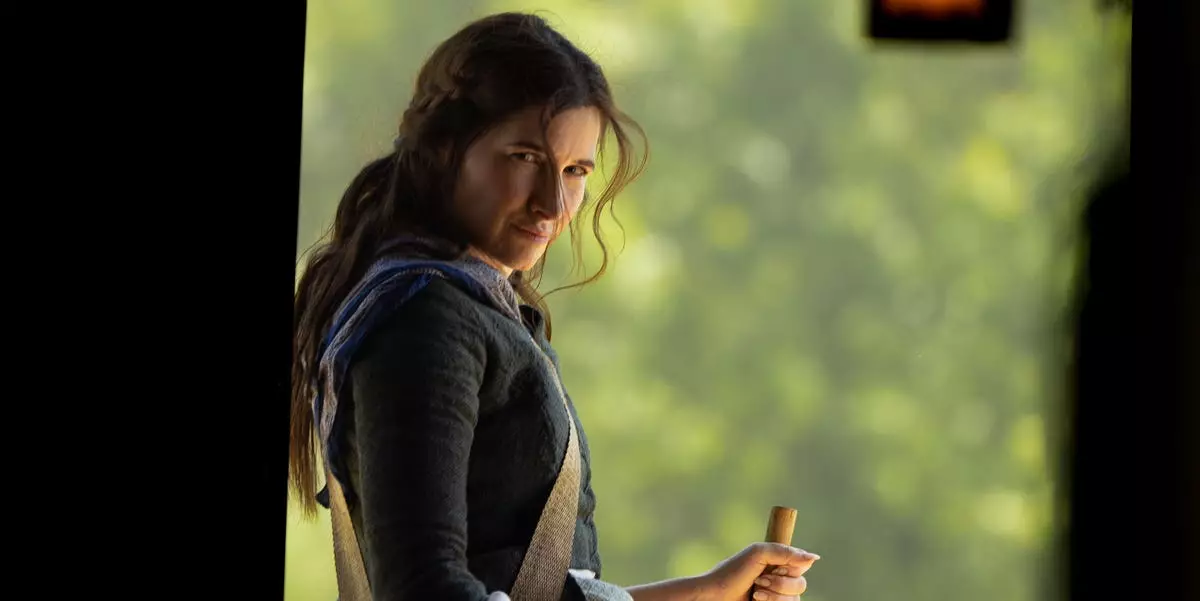The Marvel Cinematic Universe (MCU) has become synonymous with post-credits scenes—a tradition that fans eagerly anticipate after every movie and television episode. These scenes often serve as tantalizing teasers or humorous asides that connect storylines across multiple projects. However, the recent Disney+ series “Agatha All Along,” which aired its finale on October 30, has disrupted this long-standing practice by omitting any post-credits content. This choice has drawn attention not only for its deviation from MCU norms but also for what it suggests about the show’s unique narrative direction.
The absence of a post-credits scene raises questions about the decision-making processes within Marvel Studios. According to Jac Schaeffer, the showrunner of “Agatha All Along,” this choice was dictated by Marvel rather than the creative team behind the series. In an interview with Variety, Schaeffer expressed that she had written “a number of” potential post-credits tags—indicating her enthusiasm for these brief moments that dazzle audiences. While Schaeffer felt that her best writing often emerges from these segments, the lack of them suggests a deliberate move by Marvel to maintain a level of mystery surrounding future storylines.
Fans often look to post-credits scenes to glean insight into the future of their favorite characters or to understand how a series fits within the broader MCU canon. The decision to forego these moments in “Agatha All Along” can be viewed as a tactical choice, reflecting Marvel’s intention to keep story arcs tightly wrapped and free from speculation.
To comprehend the implications of this decision, it’s essential to consider Agatha Harkness’s character within the MCU. As a spin-off from the fan-favorite “WandaVision,” “Agatha All Along” centers on one of its most intriguing figures: Agatha, played by Kathryn Hahn. While Agatha’s character has become a fan favorite due to her blend of humor and darkness, the show notably refrains from incorporating Wanda Maximoff (played by Elizabeth Olsen). The absence of Wanda—especially after her tumultuous exit in “Doctor Strange in the Multiverse of Madness”—hints at a conscious move to carve out Agatha’s independent narrative without leaning too heavily on established storylines.
As Schaeffer mentioned, the creative freedom in writing potential post-credits scenes allowed her to play with narrative possibilities without ramifications. Yet, Marvel’s decision suggests that they perhaps want to delineate Agatha as a character not heavily enmeshed in existing story arcs.
The implications of Agatha’s standalone story also extend to the future of the MCU. With characters like Billy, who is poised to become Wiccan and a potential member of the Young Avengers, fans have begun theorizing what might be next for Marvel’s burgeoning team of younger superheroes. The integration of figures like Hailee Steinfeld’s Kate Bishop and Xochitl Gomez’s America Chavez into the MCU in recent projects has heightened excitement about a potential Young Avengers storyline. However, due to Marvel’s silence on upcoming projects, the absence of a post-credits scene could signal a cautious approach to narrative outcomes—avoiding premature announcements that might lead to fan disappointment.
Ultimately, the absence of temporary narrative satisfactions leaves viewers pondering possibilities without definitive connections. It creates a space for Marvel to cultivate intrigue in a manner that requires fans to engage more deeply with ongoing storylines.
While the absence of a post-credits scene in “Agatha All Along” may leave some fans uneasy or unsatisfied, it ultimately reflects an innovative approach to storytelling within the MCU. By removing these traditional cues, Marvel challenges its audience to focus on the individual journeys of its characters rather than simply anticipating how each show will interlink. In a rapidly evolving narrative landscape, such a strategy can yield richer storytelling, emphasizing character development and plot progression over mere fan service.
As the MCU continues to expand, it is crucial for creators to find new ways to engage audiences, and the omission of post-credits scenes in “Agatha All Along” may be a sign that Marvel is willing to forge a new path—one that prioritizes storytelling depth over the familiar template that fans have come to expect. In an era marked by unpredictability, this reinvention could ultimately strengthen viewer investment in the Marvel universe as it moves forward.

